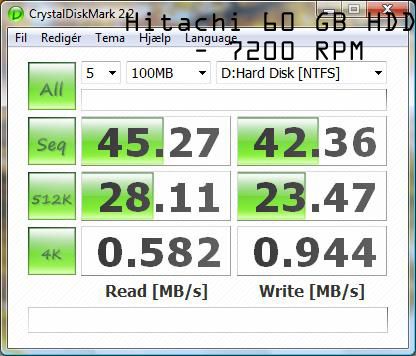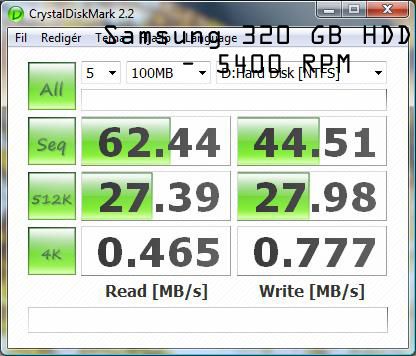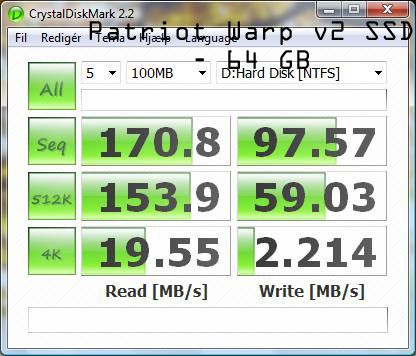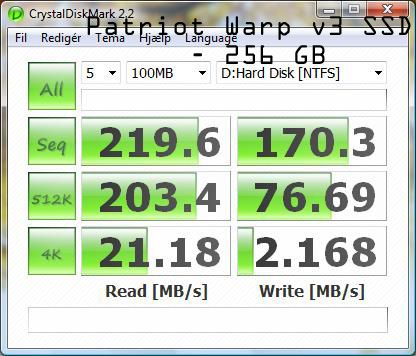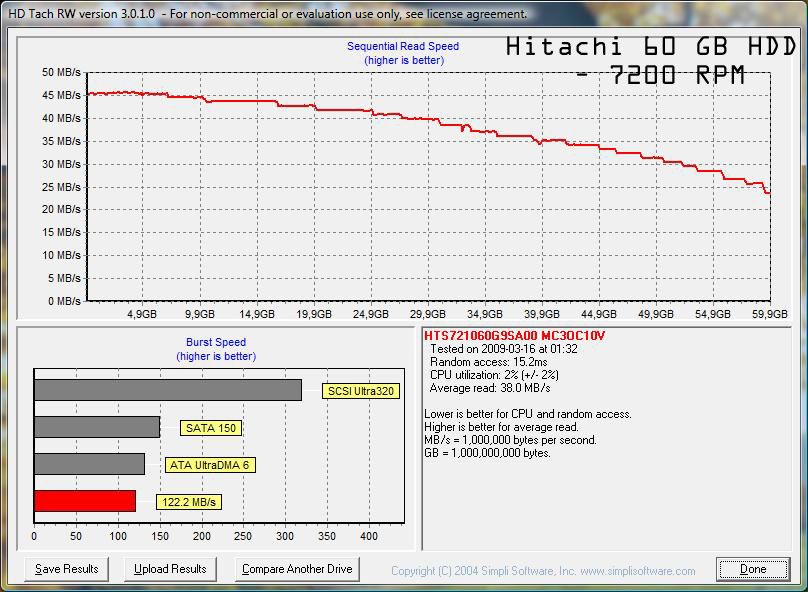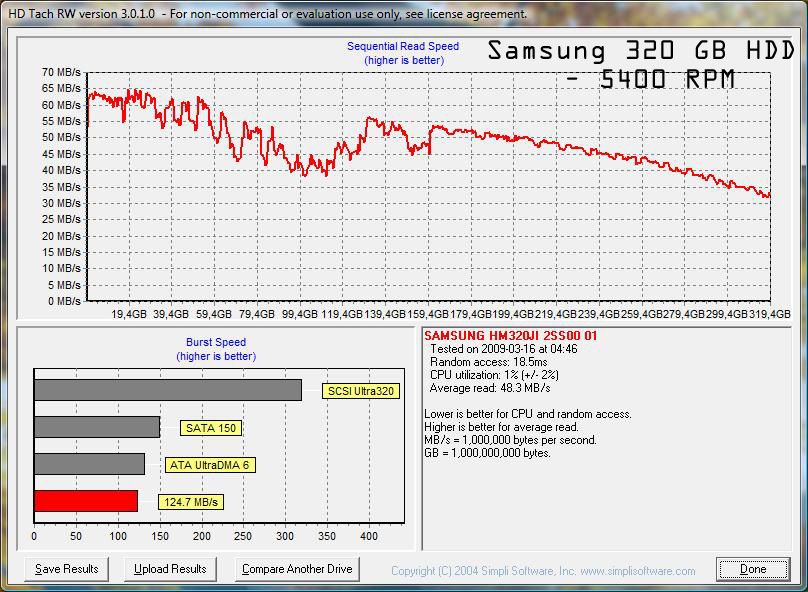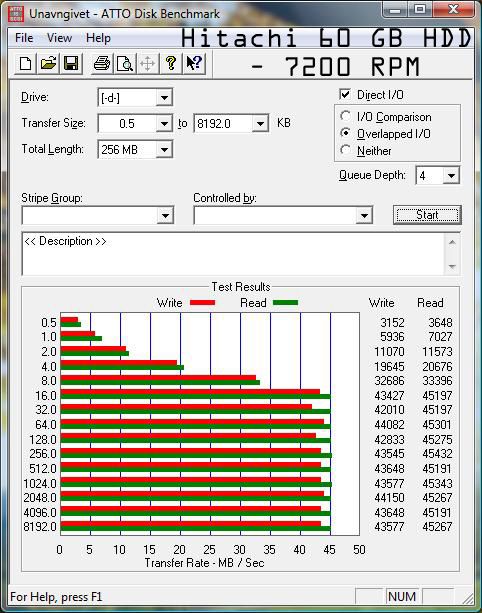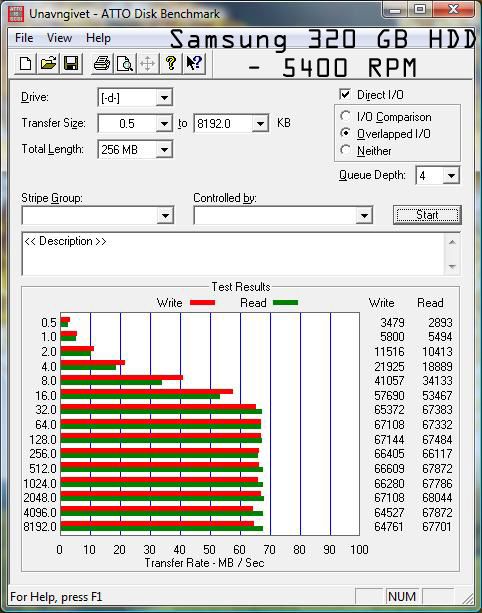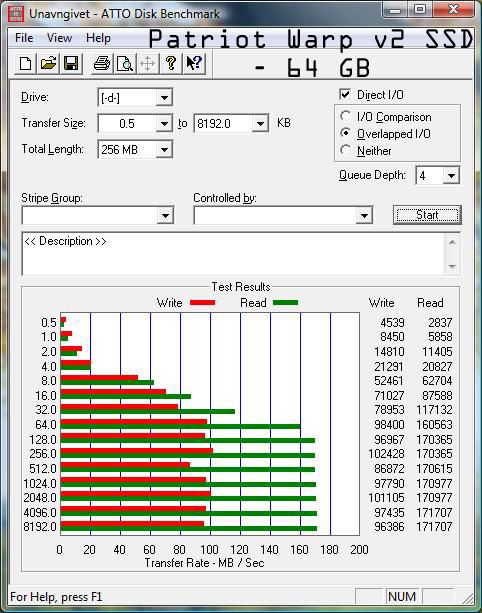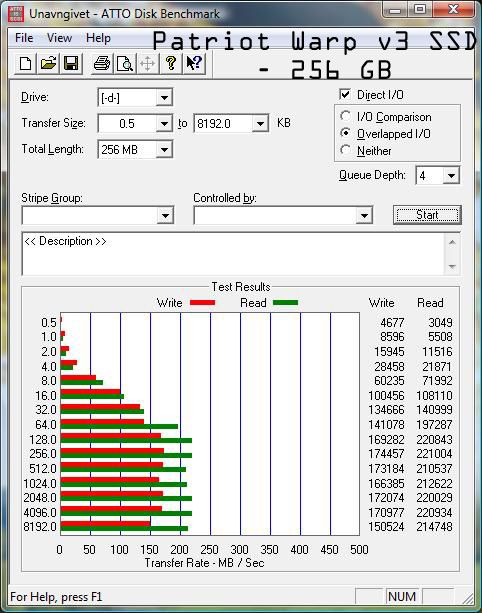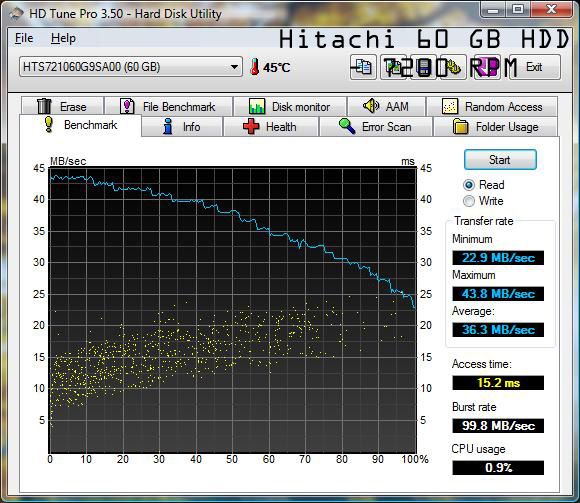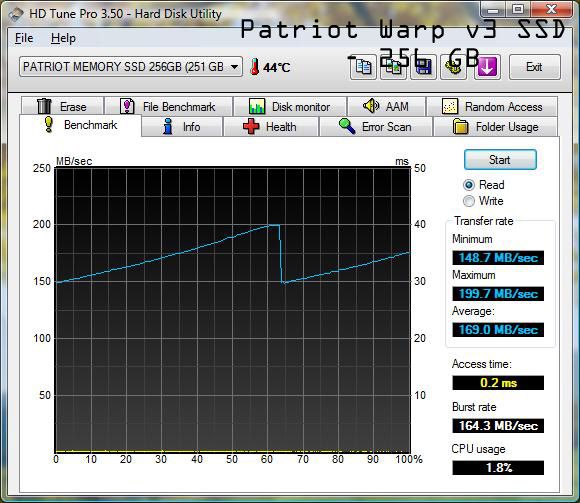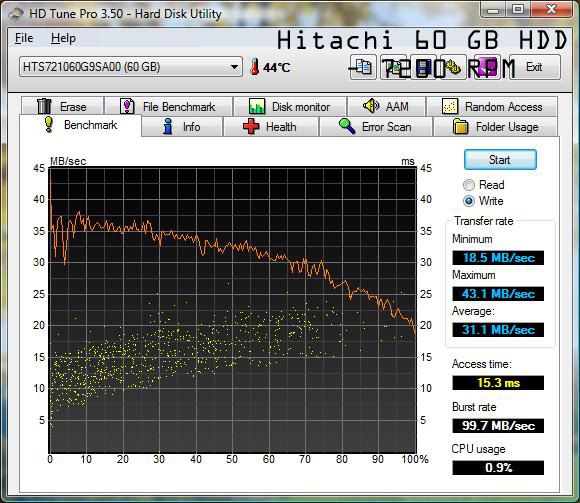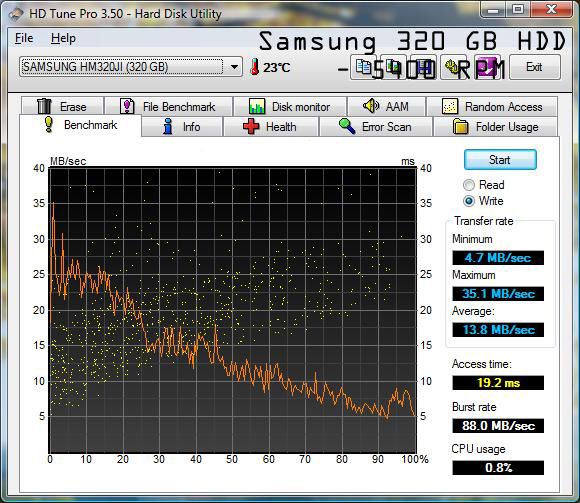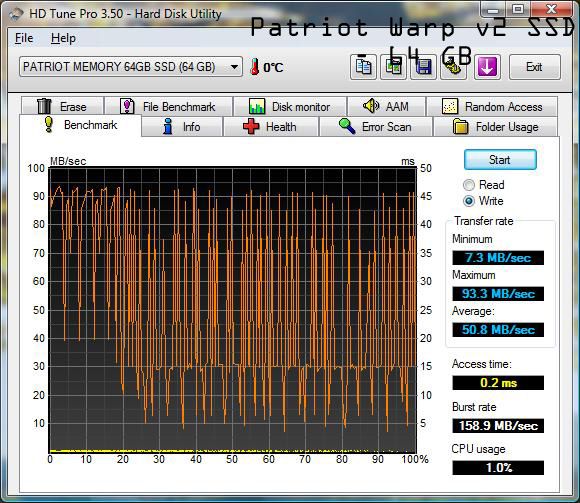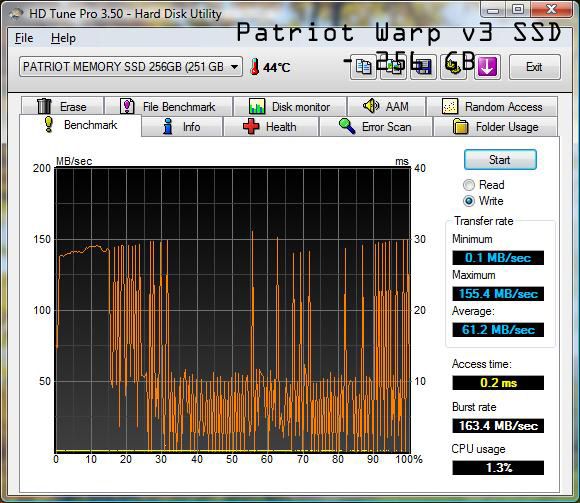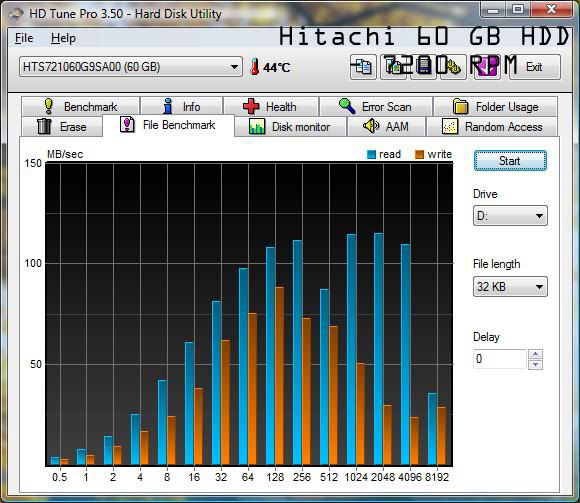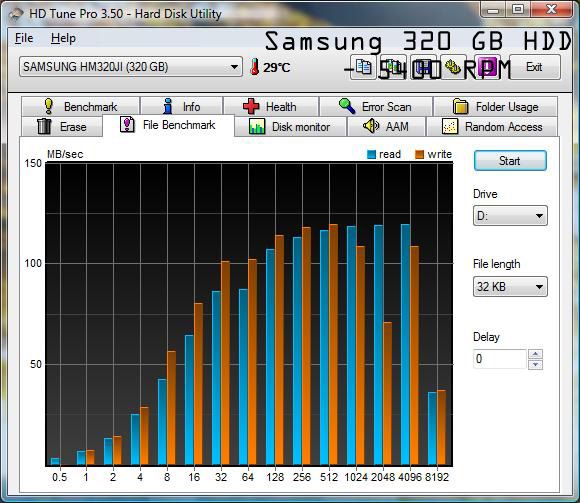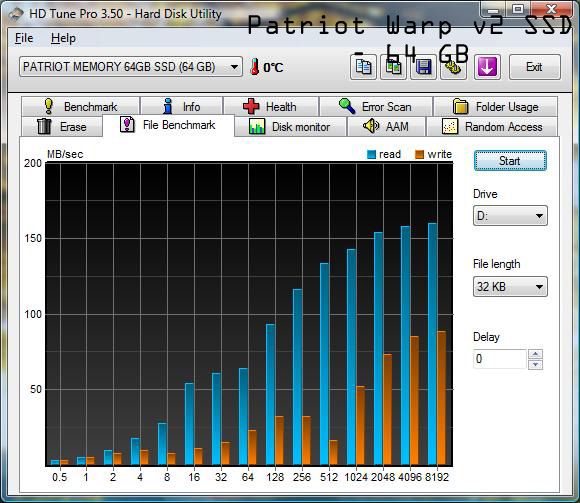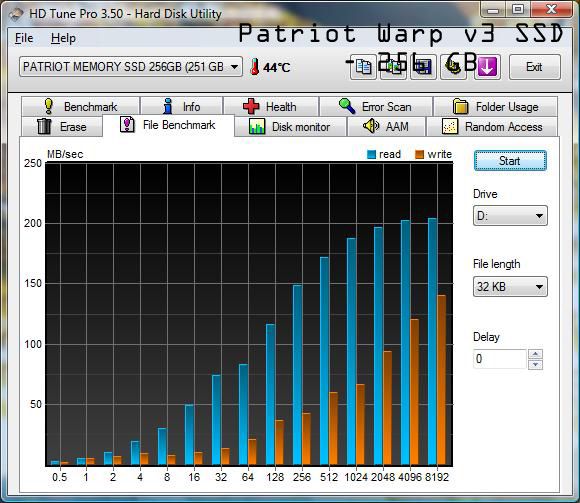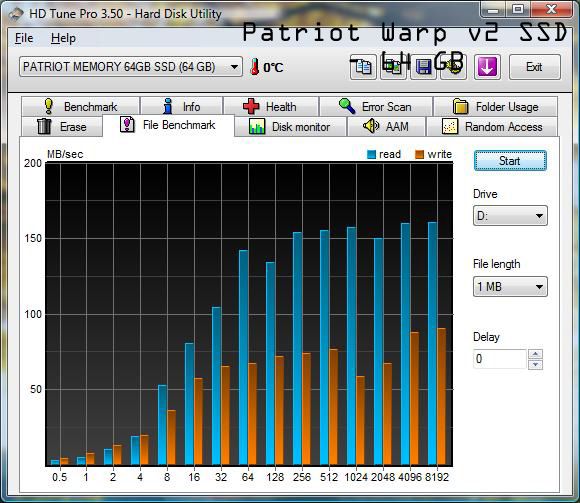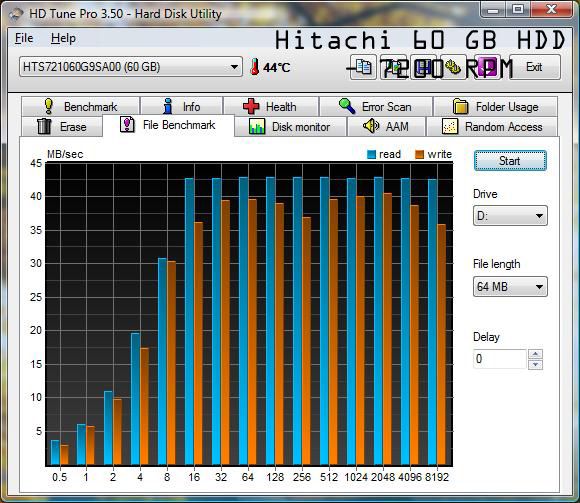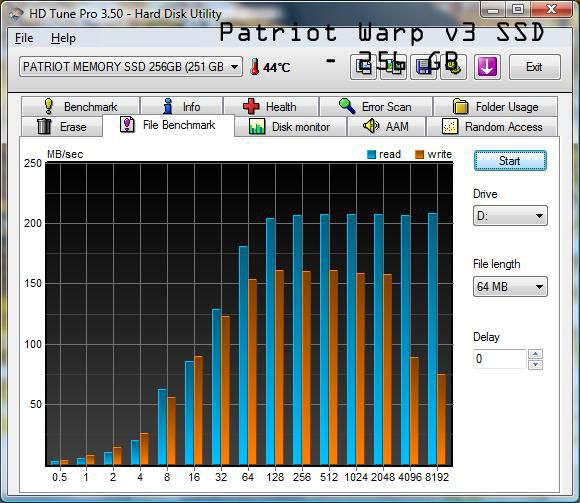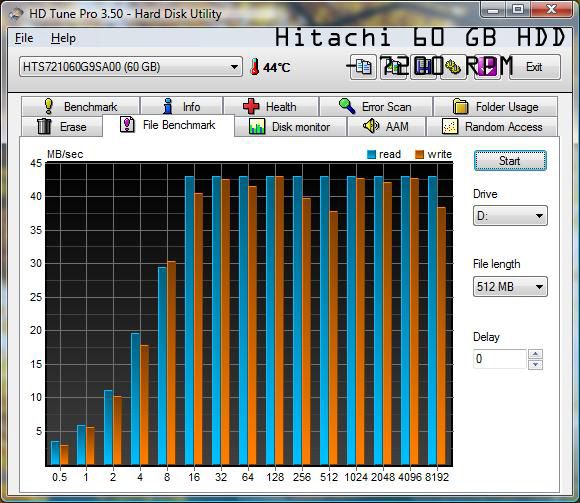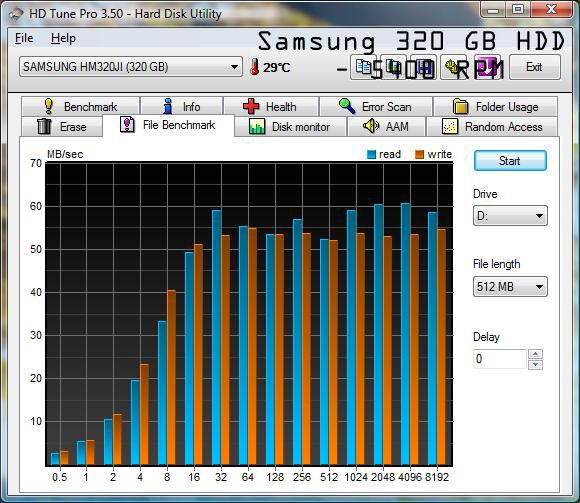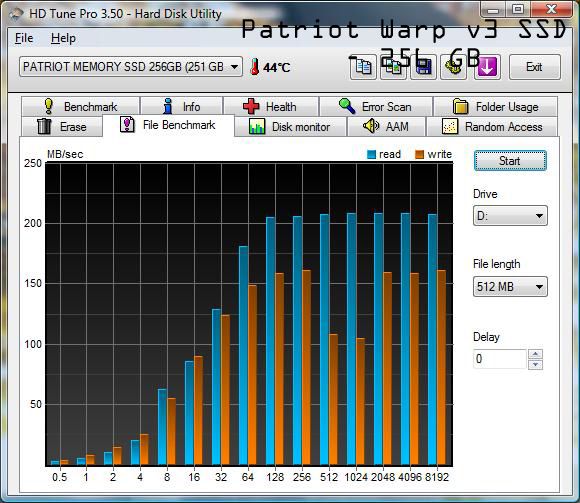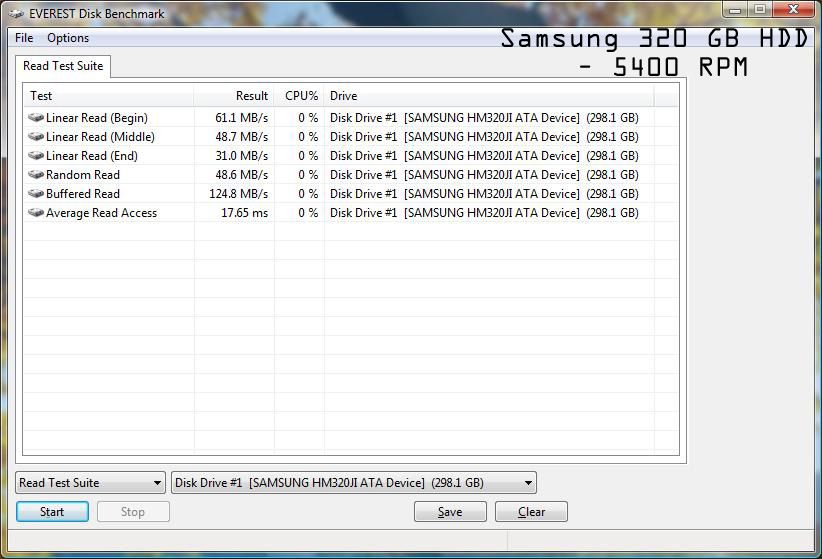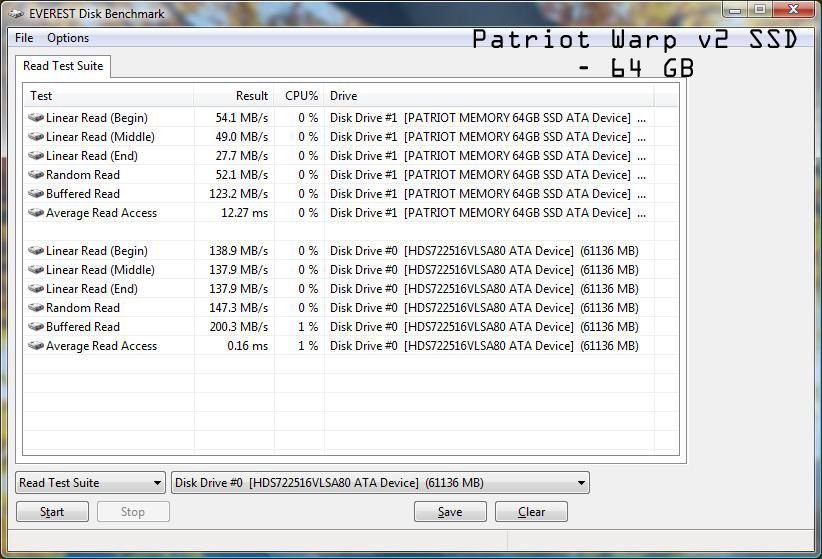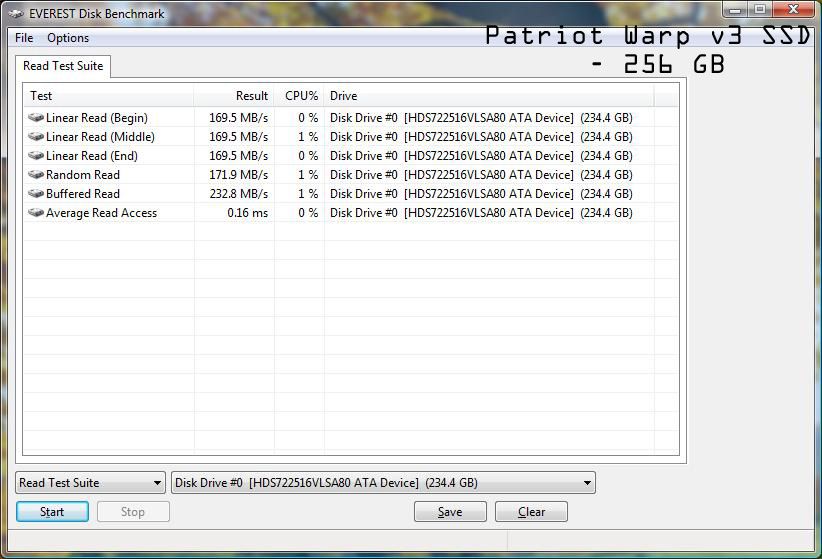Test: Patriot Warp v3 Performance SSD 256 GB UK
Solid state disk d. 20. marts. 2009, skrevet af The Boss 1 Kommentarer. Vist: 7825 gange.
Billed behandling:
Oversættelse:
Pristjek på http://www.pricerunner.dk
Produkt udlånt af: Patriot Memory
DK distributør: MMD
Test
Before beginning the tests, a couple of things need to be clarified.
When it comes to benchmarking of storage units, there's no way of saying that a unit can read with xxxx MB/s and write with xxxx MB/s without looking at the testing conditions, because there are a lot of different factors to account for, so we'll begin with accounting for those, one by one, to make sure that the end-results can be interpreted correctly.
Factor 1: The area being tested on the disk
Factor 2: The data stored on the disk
Factor 3: The size of the files used for testing
With these factors in place, we can begin testing different speeds that can, once again, be put into three different groups, each of which has a significance to how the disk performs and behaves under the factorial conditions mentioned before.
Access time
Read/write speed
The latter can be split into "Sequential" and "Random" read/write speeds.
The programs we'll be using for testing, test some of or all of the speeds mentioned above, but they all do that in different ways. After many hours of benchmarking and testing, it is clear to us that the results of some programs are worth more than those of other programs, but we've chosen to include the results from all the programs used, because we feel that the readers must have the opportunity to compare their own harddrives, with as wide a range of benchmarking programs as possible.
The test-rig consists of:
Asus P6T Deluxe
Intel Core i7 920 @ 4200 MHz
MSI 9800GX2
Patriot Viper 3x1 GB @ 1680 MHz / 7-6-6-18 1T
Enermax Galaxy 1kW
Patriot Warp v3 / 256GB SSD
Watercooling (CPU only):
NexXxoS X2 Highflow Plexi
XSPC X20 400
240mm radiator w. 2 x 120mm 1000 RPM fans
Test-programs:
Crystal Diskmark
HD Tach
ATTO
HD Tune
Everest
PCMark05
PCMark Vantage
| Drives compared: |
| Patriot Warp v2 / 2.5" / 64 GB / SSD |
| Samsung HM320JI / 2.5" / 320 GB / HDD / 5400 RPM |
| Hitachi HTS721060G9SA00 / 2.5" / 60 GB / HDD / 7200 PRM |
We'll begin with testing all the disks as newly formatted, installed as the secondary disk on an already running OS.
Then we'll install Windows Vista Home Premium 64-bit on each disk, and repeat all tests + the tests demanding the operative system to be placed on the particular disk.
Round 1 - no data on the disks
Crystal Diskmark
Crystal Disk Mark tests the sequential speed and the filelengths of 4K and 512K. We're not quite achieving the specified 240 MB/s read speed, but in return we're achieving a write speed of 170,3 MB/s - or more than 10,3 MB/s more than the specified maximum.
HD Tach
HD Tach tests all areas from the beginning to the end of the disc and we're seing one of the conventional HDDs biggest "problems", that a spinning harddrive, rotates faster while approaching the edge (in the beginning) and slower middle of the disk. This is also one of the reasons why a newly formatted harddrive with a fresh OS appears faster than a system that has been used for a long time. SSD has no signs of this problem, as the performance is consistant no matter where the disk is being accessed. 160 MB/s seems to be the highest achievable average on the Patriot Warp v3, while it momentarily (burst) reaches beyond the specified 240 MB/s read speed.
ATTO
ATTO will test the read speed and the write speed with 15 different file-lengths. When testing higher filelengths, the Patriot Warp v3 reads with more than 200 MB/s and writes at a speed between 160 and 170 MB/s.
HD Tune - Read
150 MB/s and 200 MB/s is what the Patriot Warp v3 achieves in this test, and that's with only 0.2 secs access time.
HD Tune Write
This test seems a little flimsy to say the least and the numbers don't seem especially trustworthy. The Samsung-disks seems only to be able to write with 5 MB/s at the end of the drive - hopeless! We should, however, mention that this test is the only test that demands a completely empty disk in order to be run, which is also why it can't be run in the next series of tests where we're testing in Windows. However, we can still use the results for an interrelated comparison and on this background it sure doesn't look bad for the Patriot Warp v3.
HD Tune - File Benchmark 32 KB
The very small size of files can easily be overcome, even for the slower HDDs that can squeeze out a little over 100 MB/s - the Patriot Warp v3 however, rings in at more than 200 MB/s. Furthermore, the performance-difference of 25% compared to the older Warp v2 is noteworthy.
HD Tune - File Benchmark 1 MB
At 1 MB, not much has changed.
HD Tune - File Benchmark 64 MB
At 64MB, the old HDDs are having trouble breathing. Samsung just barely reaches 60 MB/s while the Patriot Warp v3 fires away with more than 200 MB/s.
HD Tune - File Benchmark 512 MB
At 512 MB, the race is over and we're seeing the exact same pattern repeating itself as with the 64 MB tests.
Everest
The old Patriot Warp v2 64 GB and the Patriot Warp v3 256 GB kept being wrongfully identified by everest, which is why there are two series of results. So the Patriot Warp v2 is the bottom-most, and not the top-most, as it wrongfully says.
The test is continued on the next page.


